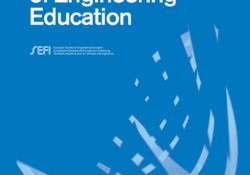eric.ed.gov har udgivet: Previous norms for the easyCBM assessment system were computed using scores from all students who took each measure for every grade and benchmark season (fall, winter, and spring). During the 2013-14 school year, new national norms were developed to more accurately (proportionately) represent reading and mathematics performance by two variables: region and student demographic. Five hundred students were proportionately and randomly sampled from each of four regions of the country (Midwest, West, Northeast, and Southeast). Percentiles by region are displayed in tables at the top of each page (pp. 15-170) for every season, grade, and measure available on easyCBM. To assist in navigating through all of the tables in the document, each page contains a heading at the top right listing the season, grade, and measure. In… Continue Reading →
Like this:
Like Loading...

tandfonline.com har udgivet en rapport under søgningen “Teacher Education Mathematics”: Abstract Abstract Recently, scholars have noted how several “old-school” practices—a host of long-standing scientific norms—in combination, sometimes compromise the credibility of research. In response, other scholarly fields have developed several “open-science” norms and practices to address these credibility issues. Against this backdrop, this special issue explores the extent to which and how these norms should be adopted and adapted for educational psychology and education more broadly. Our introductory article contextualizes the special issue’s goals by overviewing the historical context that led to open science norms (particularly in medicine and psychology); providing a conceptual map to illustrate the interrelationships between various old-school as well as open-science practices; and then describing educational psychologists’ opportunity to benefit from and contribute to the translation… Continue Reading →
Like this:
Like Loading...

tandfonline.com har udgivet en rapport under søgningen “Teacher Education Mathematics”: ABSTRACT ABSTRACT It is widely argued that engineering education needs to change in order to attract new groups of students and provide students with knowledge appropriate for the future society. In this paper we, therefore, investigate and analyse Swedish universities’ websites, focusing on what characteristics are brought to the fore as important for tomorrow’s engineers. The data consist of text and pictures/photos from nine different Engineering Mechanics programme websites. Using a critical discourse analysis approach, we identify three societal discourses concerning ‘technological progression’, ‘sustainability’, and ‘neoliberal ideals’, evident in the websites. These discourses make certain engineering identities possible, that we have labelled: traditional, contemporary, responsible, and self-made engineer. Our analysis shows that universities’ efforts to diversify students’ participation in engineering… Continue Reading →
Like this:
Like Loading...
tandfonline.com har udgivet en rapport under søgningen “Teacher Education Mathematics”: Abstract Abstract In this paper, I will discuss possible sources for Priestley’s norm of correctness in his grammar book, The Rudiments of English Grammar, from a socio-historical perspective. I will show that Priestley’s norms of correctness were informed by the usage of the well-educated middle class, the language of science, Robert Lowth’s grammar and the discourse community of eighteenth-century grammarians, and a contemporary canon of good and bad usage. Link til kilde
Like this:
Like Loading...


